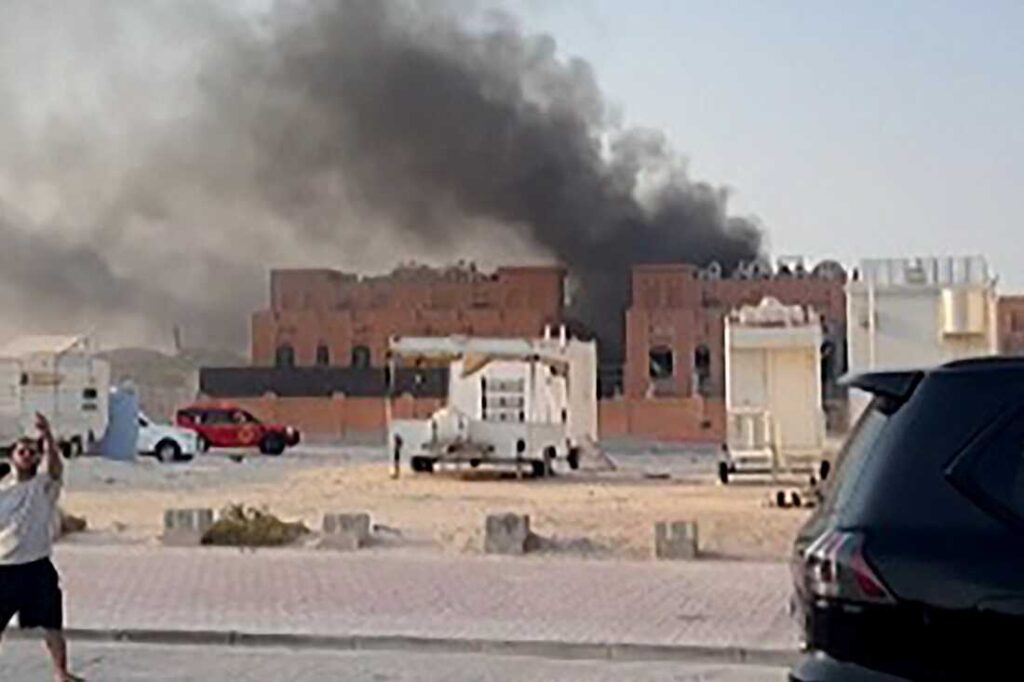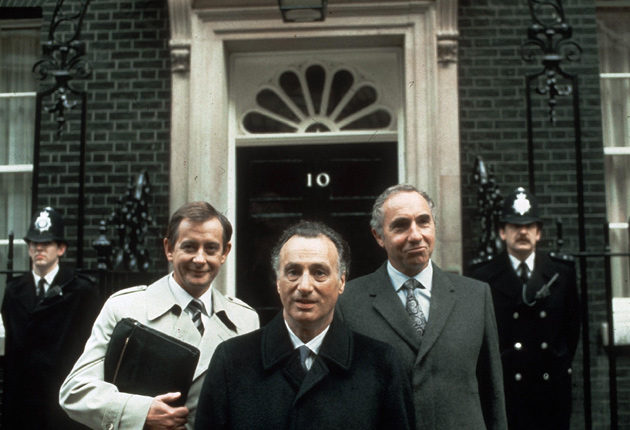A failed airstrike on 9 September broke the stalemate, isolated Netanyahu and forced a deal. The only workable outcome now is an armistice with accounting: hostages for corridors, daily monitoring, and real penalties for breaches, Adel Darwish argues.

Dates matter in the Middle East, and many dates became names of important sites and monuments. 9 September 2025 is one of them. An Israeli air strike on Hamas figures meeting in Doha did not decapitate the movement, but it detonated assumptions. It told Hamas there is no sanctuary left. It exposed the political ceiling facing Israel’s Prime Minister Benjamin (Bibi )Netanyahu. And it jolted Washington—President Trump, personally—into blunt engagement that turns fury into leverage. “Bibi, you cannot fight the whole world,” he reportedly said. That is not diplomacy by sonnet; it is the language of a dealmaker who knows when a war aim has outrun the coalition needed to sustain it. The point is not who was persuaded; it is that everyone was cornered by the same facts at the same time.
The strike changed the psychology inside Hamas. Doha had been the last place its leaders believed they could plan and bargain in relative comfort. Once you are targetable anywhere, your margin for waiting it out collapses. Hamas needed a ramp—any ramp—off a burning platform. The same date tolled another bell in Jerusalem. The operation failed to eliminate its intended targets. A failed audacious strike is costlier than no strike at all. It handed critics proof that maximalist rhetoric was outrunning results, while Israel’s allies—from Washington to European capitals—were signalling exhaustion. Several European states then moved to recognise a Palestinian state. Recognition alone does not change realities on the ground, but it sharpened Israel’s isolation just as the war was taxing its economy, its diplomacy and the patience of friends. There is a grim memory in the Israeli debate: when Israel left Gaza, Hamas, the masters of the strip, struck a nasty blow when it had the chance. That October trauma is not a talking point; it is an imprint—quietly understood across regional capitals that will not say it aloud for fear of inflaming their own streets. On 9 September, the arithmetic, not the slogans, mattered: Israel can strike back but cannot, alone, produce an end-state without partners.
Three regional actors suddenly mattered most: Egypt, Qatar and Turkey. Egypt is Israel’s consequential neighbour and Gaza’s only non‑Israeli exit. Since the 1979 peace treaty, Cairo and Jerusalem have been at peace longer than they were at war. Egyptian intelligence knows Gaza inside out and the red lines; when Cairo turns the screws, it hurts. Qatar is where Hamas leaders have sheltered, fund‑raised and politicked. Doha’s leverage is the guest list; without its facilitation, any prisoner‑hostage exchange or stabilisation plan loses the only channel the movement trusts. Turkey is NATO by treaty and Muslim Brotherhood by sympathy. President Erdoğan’s moves conduct Islamists’ calculated steps. Individually, each capital can stall. Together, they can compel. And together is how they came—first separately, then in concert on the margins of the UN—with one message to Washington: do not ask us to defend a process while you tolerate tactics that kill the process. That message landed.
This is the other half of 9 September. The American President’s anger at the strike was not moral theatre; it was transactional. He saw an Israeli move that shredded the coalition needed to stabilise Gaza, protect the hostages, keep the Red Sea from flashing over and prevent Lebanon from sliding from simmer to boil. The lesson of decades of bargaining is simple: coalitions make peace; loners make speeches. A White House that feels its coalition splintering slams the table—and did. Hence the intervention that followed: deal now. Hostages for corridors. Monitors who do monitor. Fuel that goes to bakeries and hospitals—with meters, not platitudes. Sanctions that hit violators, not bystanders. Draw the map. That is not appeasement; it is engineering.
Netanyahu’s critics say he blinked; his supporters say he bought time while keeping pressure on Hamas. Both can be true. What mattered on 9 September was that a loud, visible failure left him naked to his right flank and exposed abroad. A leader can survive one of those, not both. Add the Abraham Accords constituency—Saudi‑aligned and Gulf monarchies that built quiet bridges to Israel. They were livid, not from sudden sentimentality, but because high‑octane strikes with low‑value results wreck the scaffolding they assembled. Those capitals called Washington. Washington called Jerusalem. The conversation was not courteous.
There will be propaganda. Hamas will claim victory; Israeli ministers will claim strategic patience. But the only viable outcome after 9 September was the one that emerged: an enforceable ceasefire with named lines, frozen heavy‑weapon movements and third‑party monitoring that reports daily, not monthly; hostage releases tied to phased opening of land and sea corridors, with barcoded aid and fuel metering at hospitals and water plants; automatic penalties when either side breaches, including suspension of reconstruction funds, targeted sanctions on field commanders and a snap‑back clause for limited defensive action after repeated violations; and regional custodianship—Egypt controlling the Rafah logic, Qatar delivering Hamas compliance, Turkey corralling the Brotherhood wing—while the United States and Europeans underwrite and referee instead of sermonising. Call it a ceasefire if you like; the more honest term is armistice with accounting.
Next? The President’s trip on 12 September to Egypt and Israel will show where the leverage lies. If Cairo publishes corridor schedules and Doha announces a sequence for releases, the hard parts are locked. If Ankara turns conspicuously quiet, pressure has reached where it needed to go. Second, the exchange itself—prisoners for hostages—will test durability. If the first tranche moves cleanly and monitors’ dashboards light with real‑time data, reconstruction escrow can open. If not, penalties fire and we are back to ad hoc. Do not be distracted by triumphalism. The question is not who won. The question is whether enough of the region has decided that permanent mobilisation is more dangerous than managed restraint. On 9 September, that calculus flipped. Hamas learned there is no safe house. Netanyahu learned that bravado without outcome isolates. And the White House learned—again—that you cannot bomb your way to partners, but you can deal your way to compliance if partners know you mean it. The ceasefire is not peace; it is a platform. It buys time for the unglamorous agenda that reduces tomorrow’s violence: clearing unexploded ordnance, restoring water and clinics, reopening schools with real deconfliction and building a border regime that keeps weapons out without suffocating life. 9 September 2025 will sit in the footnotes as the day a strike failed and a deal began—not because anyone had a change of heart, but because everyone ran out of alternatives. That is how history moves here. // end

